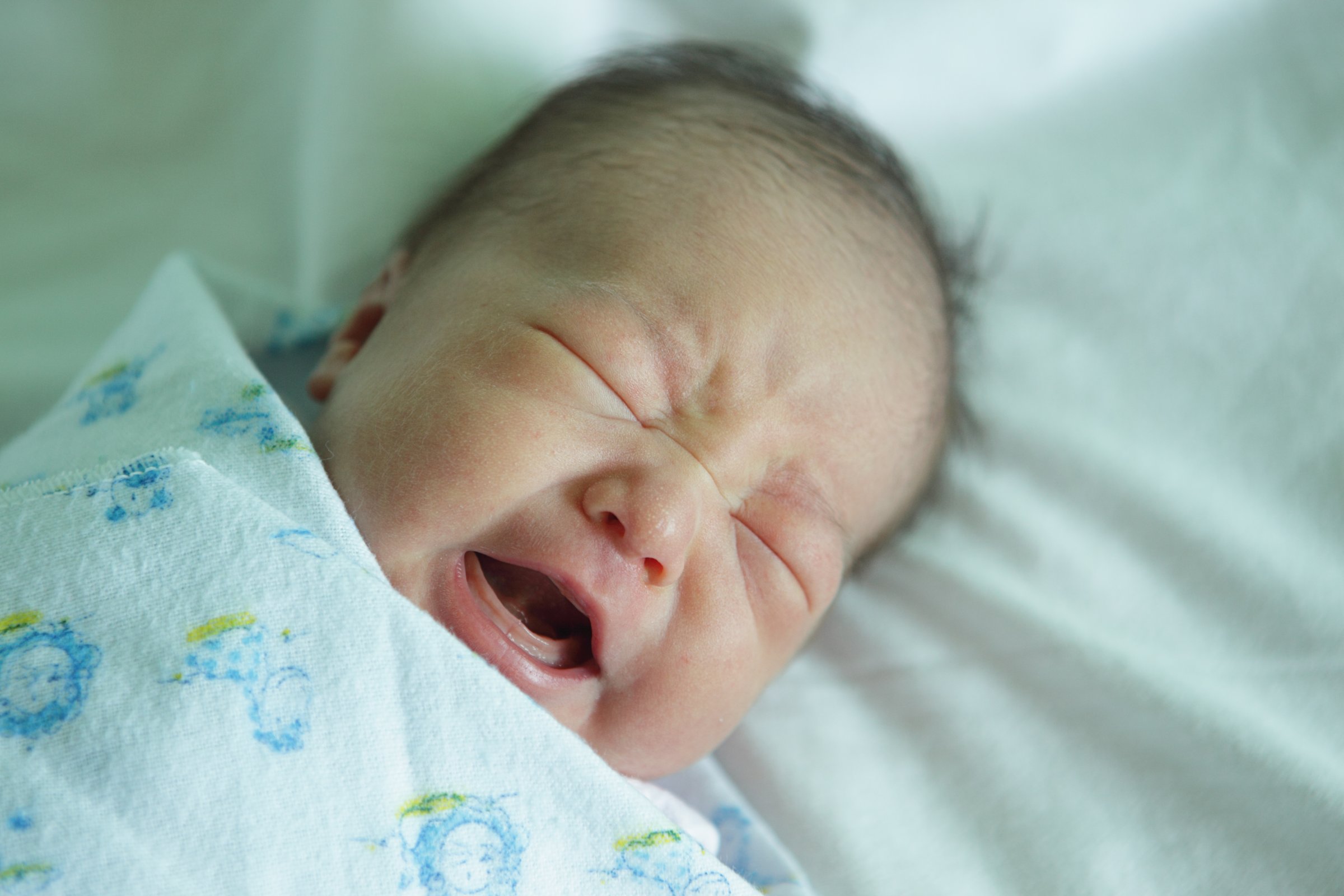
In a first, researchers at Oxford University have watched infants as young as a day old as their brains process a light prodding of their feet. The results confirm that yes, babies do indeed feel pain, and that they process it similarly to adults. Until as recently as the 1980s, researchers assumed newborns did not have fully developed pain receptors, and believed that any responses babies had to pokes or pricks were merely muscular reactions. But new research published Tuesday morning changes that.
Taking advantage of the fact that newborns less than a week old tend to sleep through anything, Rebeccah Slater, an associate professor of pediatric neuroimaging at Oxford, and her colleagues placed 10 infants who were 1-6 days old in an fMRI machine. The researchers, who reported their findings in eLife, observed which areas of the infants’ brains became more active, or consumed more oxygen, as the scientists lightly poked their feet. They did the same for adults and compared the brain images.
In adult brains, 20 regions were activated by the painful stimulus, and the newborns shared 18 of these. “The infant’s brain is much more developed than I was expecting,” says Slater. “I might have thought that some information might have gone to the sensory areas of the brain — telling the baby something was happening on the foot, for example — but I didn’t necessarily think it would go to areas more commonly involved in emotional processing such as the anterior cingular cortex, which is thought be involved in the unpleasantness associated with an experience.”
Even at birth, then, a baby’s brain possesses the foundation for quickly evaluating anything he or she experiences, including painful stimuli. “I hope this provides incentive to more researchers to find better ways of measuring pain in babies, and prioritize the importance of providing the best pain relief possible in children,” says Slater.
Slater found that newborn brains are still immature in some ways, however. Any stimulus, whether it’s a painful one or a sensory one such as a smell, tends to activate widespread regions of the brain. That signals that the baby’s brain is still trying to learn what’s what and distinguish different stimuli. The poking triggered even the newborns’ olfactory system, for example, even though the sensation had nothing to do with smell.
Second, babies tend to register all stimuli as having the same intensity. Even light pokes “feel” the same as harder ones, reflecting their still inexperienced system in distinguishing levels of activation.
But the fact that they are experiencing pain in almost the same ways as adults do is very revealing. Now that there’s evidence that the brains of babies do indeed process pain, that may change the way doctors treat newborns, especially those who are premature or need extra medical attention in the neonatal intensive care unit. In a recent study, scientists tallied an average of a dozen procedures including needle sticks that babies experienced every day; more than 60% of those infants did not receive any pain medication, either in the form of a topical numbing cream or other pain relief. Having these experiences may make these babies more sensitive to pain later in life, says Slater. A study of circumcised baby boys, for example, found that those who received pain relief felt less pain when getting vaccinations three months later than those who didn’t receive any pain medication.
“Now that we have seen for the first time what is happening in babies’ brains while they experience something mildly painful,” says Slater, “there should be a big drive to try to treat pain in these children, especially those having a high number of procedures performed in their early days.”
More Must-Reads from TIME
- Cybersecurity Experts Are Sounding the Alarm on DOGE
- Meet the 2025 Women of the Year
- The Harsh Truth About Disability Inclusion
- Why Do More Young Adults Have Cancer?
- Colman Domingo Leads With Radical Love
- How to Get Better at Doing Things Alone
- Michelle Zauner Stares Down the Darkness
Contact us at letters@time.com